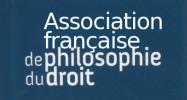Paper's abstract
Roger D.
Masters,
Machiavelli, Leonardo da Vinci, and the Transition to Modern Politics
Scholars have long debated whether Machiavelli is the "first modern", an exponent of "classical republicanism", or a secular thinker within a pre-modern or medieval perspective. The personal relationship between Leonardo da Vinci and Machiavelli, of which political theorists have generally been unaware, provides the basis for a clearer understanding of Machiavelli's role in the transition to modernity. Leonardo's conception of a science of nature and its potential for technological innovations was a major step in the shift from ancient or medieval philosophy to modern natural science. After serving both Ludovico Sforza (1483-1500) and Cesare Borgia (1502-1503) as military engineer, Leonardo returned to Florence in 1503. Machiavelli, who apparently first met Leonardo in 1502, secured his technical assistance in a project to redirect the channel of the Arno River in order to defeat Pisa, Machiavelli was also apparently associated with Leonardo's commission to paint the Battle of Anghiari, and arranged for him to conduct a technical mission to Piombino in 1504. Textual evidence indicates that Machiavelli was clearly influenced by these experiences, thereby suggesting a plausible answer to the controversies about Machiavelli's "modernity". In particular, the difference between Leonardo's approach to mathematics and physics, and that of Galileo or Newton illuminates the further steps that are necessary for the full development of the modern approach to politics by Hobbes and Locke in the Anglo-Saxon tradition, and by Descartes and the philosophes on the continent.
Key Words : Machiavelli, Vinci, Modern politics
t. 41, 1997 : p. 413-443
